On Nov. 4, the Trump administration formally notified the United Nations that the United States will withdraw from the Paris Agreement on climate change — an international pledge from 200 nations to cut greenhouse gas emissions. The action will take effect in one year. Experts from Washington University in St. Louis expressed dismay that the U.S. government is forgoing a critical leadership role in addressing climate change, and offered a few suggestions on how to move forward.
Bronwen Konecky on missing opportunities
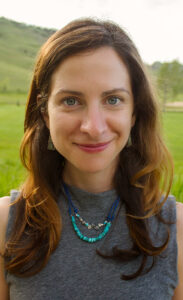
“The United States is the second biggest greenhouse gas emitter in the world,” said Bronwen Konecky, assistant professor of earth and planetary sciences in Arts & Sciences. “But we are also a hub to some of the most creative, talented scientists and engineers in the world.
“The Paris Agreement gave us an enormous opportunity to set our own goals for climate change mitigation, and then to spark the innovation that could achieve those goals through technological research and development, better infrastructure, grassroots strategic planning in rural communities, cities and states, and economic wins all around.
“Setting strategic, ambitious goals and a strict timeframe for achieving them is exactly how you foster innovation. By pulling out of the Paris Agreement while other countries step up to the challenge, the United States runs the risk of getting left behind.”
Beth Martin on stepping up as a region
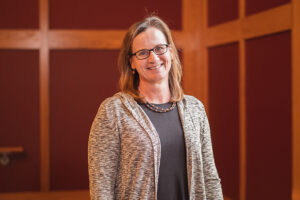
“Addressing climate change is a critical priority for our nation and for institutions of higher education,” said Beth Martin, senior lecturer in environmental studies in Arts & Sciences and interim director of the Washington University Climate Change Program. “The administration’s announcement that the United States will begin the process of withdrawal from the Paris Agreement is short-sighted. It does not reflect what most Americans know and want.
“Americans understand that human activity fuels climate change, and 70% support government action to address climate change. In leaving the group, the United States will forgo a critical leadership role in implementing the Paris Agreement. It also will miss the opportunity to ensure all countries work individually and collectively to curb emissions and take critical climate actions.
“If there is a positive side to the announcement of U.S. withdrawal, it is the response of leaders from state and local government, businesses, colleges and universities and so many others to lead on climate action. Here in St. Louis, Washington University is working collaboratively with local partners to set regional climate goals consistent with the United States’ Paris Agreement commitments and to support each other in achieving those goals. My students and I will continue to attend the United Nations climate meetings as observer delegates and work to connect climate action on the international stage with local climate action.
“Through the Washington University Climate Change Program and other efforts, we recognize the magnitude of climate change and are working to equip our faculty, students and community with tools and resources to create transformative solutions and respond to current and emerging challenges.”
Himadri Pakrasi on continuing investment and partnership pathways
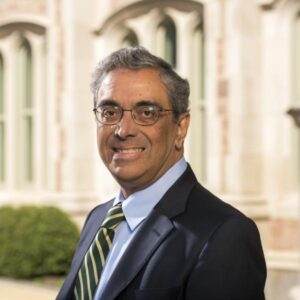
“The decision is regretful and will impact the United States’ ability to fully engage on these important global negotiations, but it does not erode the importance of immediate action, the promise of American ingenuity, or the potential to shape an equitable green economy,” said Himadri Pakrasi, director of the International Center for Energy, Environment and Sustainability (InCEES) and the Myron and Sonya Glassberg/Albert and Blanche Greensfelder Distinguished University Professor.
“Science funding from the federal government remains strong, while private and corporate philanthropy is increasing substantially. This funding, along with key economic drivers — i.e., the decreasing costs of renewable energy, an accounting for the true health costs of climate inaction, new business opportunities for energy storage, and so on — will continue to provide investment and partnership pathways for community-based and ground-up climate leadership from within, and across, the United States.
“Our goal remains as it was before: to find meaningful and inclusive ways to accelerate climate action with near-term impacts, while training the next generation of global leaders to ensure the promise of innovations today are realized for subsequent generations.”
Elizabeth Hubertz on impact on students
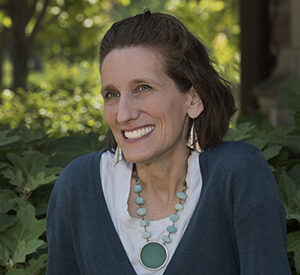
“At the Interdisciplinary Environmental Clinic, we are disappointed at the administration’s decision to have the U.S. turn its back on the Paris Agreement,” said clinic director Elizabeth Hubertz, assistant professor of practice in the School of Law.
“Participation in the Paris Agreement gave us a chance to bring our region and our nation forward, in conjunction with others. Here in Missouri, where we depend on coal for much of our electrical power generation, we already lag behind other U.S. states, and behind other countries in preparing for future climate change.
“Further, at the IEC, we want to provide our students with the legal and technical skills to tackle the most important environmental problems facing our world. Withdrawal from the Paris Agreement signals to our students that our federal government does not want them to be part of the cooperative global environmental future.”


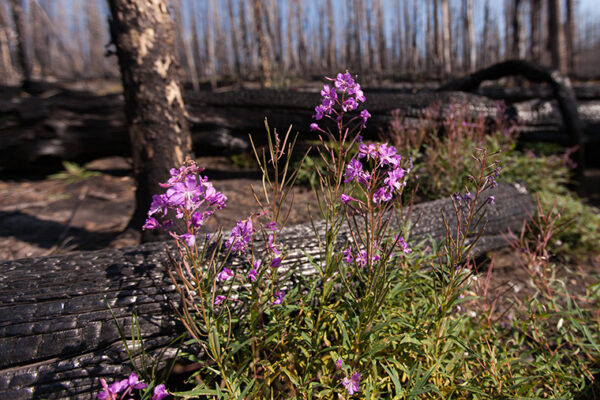
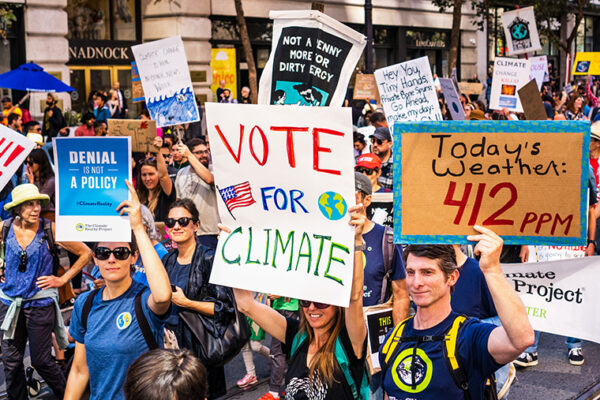
Comments and respectful dialogue are encouraged, but content will be moderated. Please, no personal attacks, obscenity or profanity, selling of commercial products, or endorsements of political candidates or positions. We reserve the right to remove any inappropriate comments. We also cannot address individual medical concerns or provide medical advice in this forum.